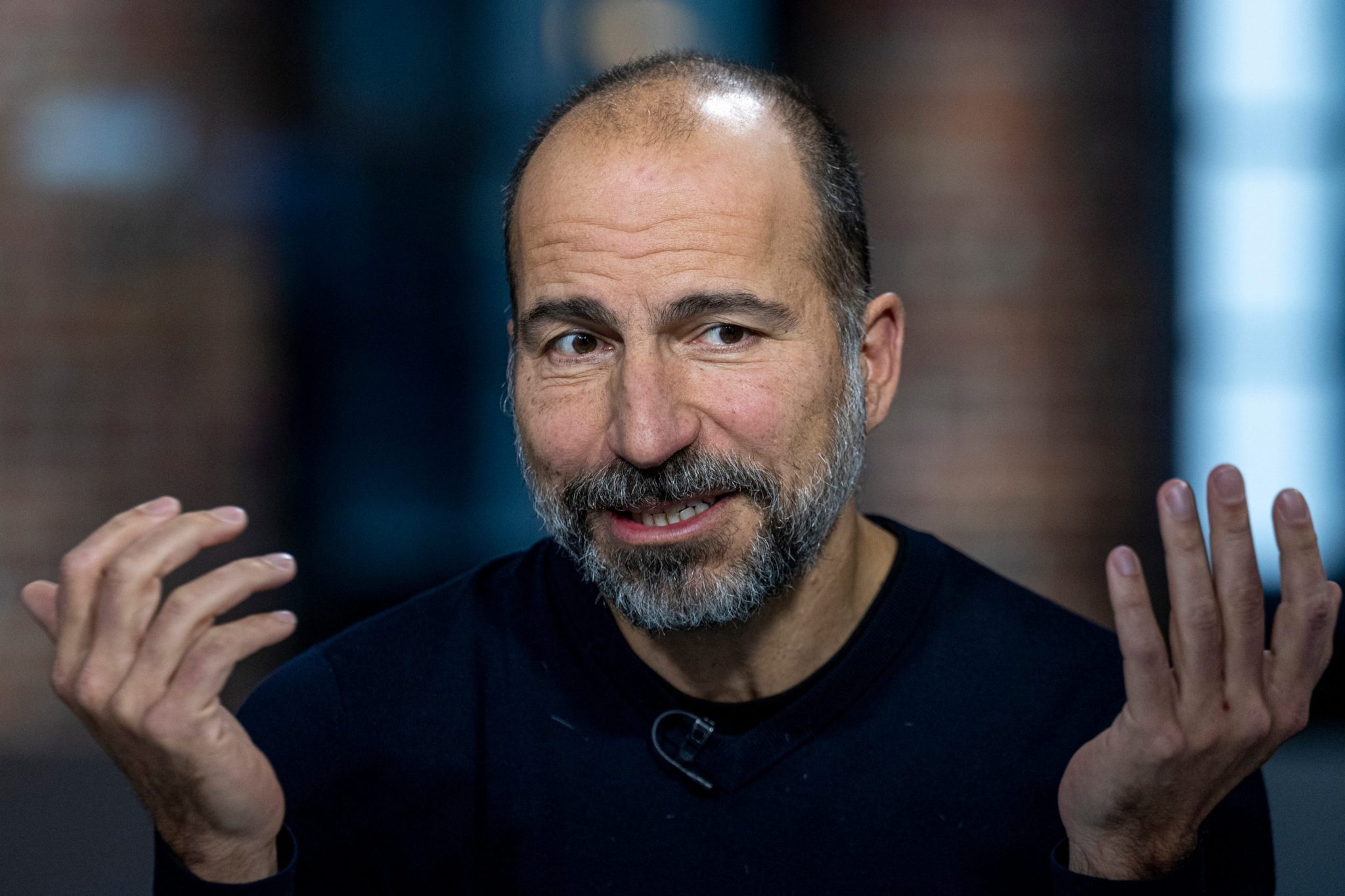
It's true that CEOs can't be up-to-date on every detail of their business—especially a business that deals with $30.7 billion worth of quarterly bookings.
But Uber CEO Dara Khosrowshahi has accidentally revealed a gap in his knowledge: how much a short ride in one of his cabs costs in America's most populated city.
In an interview published this week, Khosrowshahi not only got the answer wrong to how much a three-mile journey in a New York Uber costs, but underestimated it by more than half.
Wired editor at large Steven Levy asked Khosrowshahi how much he believed a 2.95-mile Uber journey—which is no longer subsidized—would cost.
Khosrowshahi gave an estimation of "twenty bucks" before being told the total was $50.
In fact, the journey had cost Levy $51.69 and had been priced $20 higher when he checked the app five minutes before booking.
"On my God. Wow," was Khosrowshahi's response, before saying the cost had been down to surge pricing.
Surge pricing is the practice of increasing prices for goods and services during peak demand times. Yet in this case, Levy pointed out, it was 10 a.m. on a sunny morning.
Uber did not immediately respond to Fortune's request for comment.
Rising prices
Although Levy admits more than $50 for a short journey is higher than normal, data suggests that Uber's prices are continuing to rise.
Bloomberg's Second Measure found that the average fare trip in the U.S. jumped 30% from the beginning of 2018 to the third quarter of 2019. Data analysts YipitData then recorded another 41% hike between Q3 2019 and Q3 2022—a total of 83% over the entire 45-month period.
Khosrowshahi directly addressed this issue, saying: "Everything is more expensive. Inflation has become a part of our everyday life."
It's a headache that has dominated the conversation for U.S. businesses and politicians alike, after inflation spiked at 8.5% in July last year before sinking to 3% in June 2023 following an aggressive round of rate hikes.
And Uber's competitors are also having to up their prices: Lyft announced a service fee hike in October last year, increasing by an average of about 60 cents, or a 3% rise in the average ride according to YipitData.
The increase was due to cover higher insurance costs, Lyft said.
Uber's price hikes are down to driver pay, Khosrowshahi said: "With Uber the vast majority of your fare is going to your driver. Earnings per week for our drivers are up 40, 50 percent over the past four years, because that is the cost of time and the cost of labor. I think that’s positive.
"And we’re seeing audience growth—130 million people come to our platform on a monthly basis.
"So while prices are higher, people are finding our services more compelling. It certainly hasn’t hurt the business."
Getting a handle on fairer pay for drivers has been a priority for Khosrowshahi since he took Uber's helm in 2017. That year the company had been forced to pay $20 million to settle charges from the Federal Trade Commission that the brand had exaggerated earnings claims in order to recruit more drivers.
Slowing growth
The interview came as Uber announced financial results that were met with mixed reactions.
On the one hand, shareholders would have been pleased to see the app, at last, has made an operating profit of an estimated $326 million during Q2 2023.
But Wall Street was cowed by revenue jumping 14% to $9.2 billion for the same period, its slowest growth since Q1 2021, promoting fears its pandemic boom may finally be stuttering to a stop.
The San Francisco company's share price took a hit. By the close of markets on Tuesday, the stock had dropped 5.7% to $46.65, the largest decline since October.
Khosrowshahi seems unfazed by such fears. In fact, despite Uber dominating 74% of the rideshare market, he says he wants his team to keep an "underdog" mentality.
He told Wired: "We will be GAAP profitable this year. [GAAP is a globally accepted accounting standard.] Every time we’ve said something, we’ve accomplished it.
"But once we get profitable, I’m going to come up with some other reason why we suck. Because that gets the team psyched up.
"We have an underdog mentality I never want to lose."






